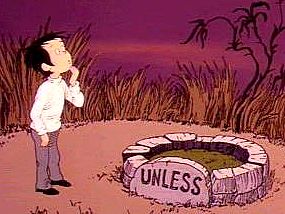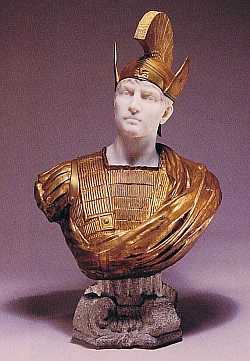 My favorite Dr. Seuss book is The Lorax. The eponymous main character looks something like an angry groundhog with a walrus mustache. Claiming to speak for the mute trees, he stands in the gap when the story’s narrator, The Once-ler, rides into the pristine forest with profit on his mind. As the Once-ler has his way with the world, despoiling every last square inch of land, chopping down every tree, forcing the forest creatures out, only the Lorax remains to stand up to him.
My favorite Dr. Seuss book is The Lorax. The eponymous main character looks something like an angry groundhog with a walrus mustache. Claiming to speak for the mute trees, he stands in the gap when the story’s narrator, The Once-ler, rides into the pristine forest with profit on his mind. As the Once-ler has his way with the world, despoiling every last square inch of land, chopping down every tree, forcing the forest creatures out, only the Lorax remains to stand up to him.
Many years later, in relating the sad tale of the destruction of the last truffula tree to a boy, the chastened Once-ler speaks these haunting words:
The Lorax said nothing. Just gave me a glance…
just gave me a very sad, sad backward glance…
as he lifted himself by the seat of his pants.
And I’ll never forget the grim look on his face
when he heisted himself and took leave of this place,
through a hole in the smog, without leaving a trace.
And all that the Lorax left here in this mess
was a small pile of rocks, with one word…
UNLESS.
Whatever that meant, well, I just couldn’t guess.
That was long, long ago. But each day since that day
I’ve sat here and worried and worried away.
Through the years, while my buildings
have fallen apart, I’ve worried about it
with all of my heart.
But now, says the Once-ler,
Now that you’re here, the word of the Lorax seems perfectly clear.
UNLESS someone like you cares a whole awful lot,
nothing is going to get better.
It’s not.
The lesson of The Lorax goes far beyond a simple environmental message. It reinforces a Biblical truth that today’s Church in America best heed—the reality of UNLESS.
UNLESS we Christians share the message of Christ with the lost, they’ll endure eternal punishment for all eternity.
UNLESS we feed the hungry, they’ll succumb to malnutrition.
UNLESS we fight for justice for the disenfranchised, they’ll continue to be exploited.
UNLESS we visit the prisoner, they’ll die in a prison of their own loneliness.
UNLESS we minister to the sick, they’ll get sicker and perish, forgotten.
UNLESS we show the world love, it’ll never know what true love is.
UNLESS….
We can fill in a thousand statements behind that UNLESS, can’t we? The job Christ left us to do is vast and not getting any less so. We are the Body of Christ—His hands, His feet. And UNLESS we do the work He’s called us to, it simply won’t get done.

 The Scriptures describe three distinctives of this soldier:
The Scriptures describe three distinctives of this soldier: Those good works include such things as evangelizing the lost, training the young, feeding the hungry, fighting injustice, stewarding the Earth, and befriending the friendless.
Those good works include such things as evangelizing the lost, training the young, feeding the hungry, fighting injustice, stewarding the Earth, and befriending the friendless.